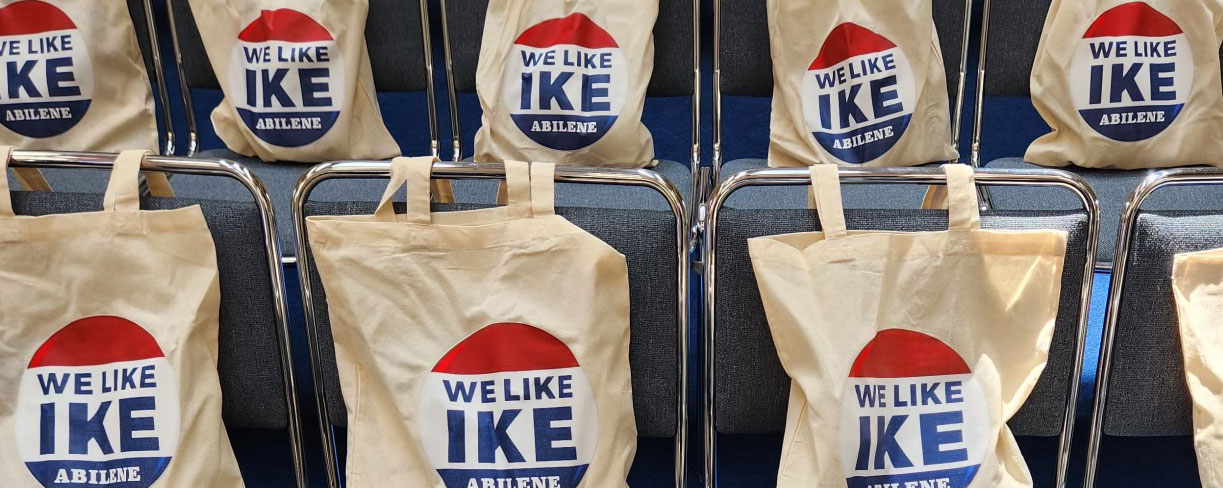
10 Years in the Making: County Receives Tax Allocation from Pipeline
February 15, 2022
ABILENE, KS: Dickinson County received its first tax allocation in January from the TransCanada Keystone Pipeline — 10 years after the company started pumping the oil sand material south through the Dakotas, Nebraska and Kansas to Cushing, Okla.
During all that time, Dickinson County and the other five Kansas counties the pipeline runs through have not received a dime thanks to the Kansas Legislature which granted TransCanada a 10-year tax exemption before pumping began.
The exemption started in 2010 and ended in 2020, making 2021 the first year the company has paid Kansas taxes. Since taxes are paid in arrears, the money that came in during January is from 2021.
During the Feb. 3 Dickinson County Commission work session, County Administrator Brad Homman said the county received $639,010.30 in its first distribution of pipeline tax money. Another distribution is slated for May.
“Take that $639,000 and double that for the year,” Homman said. “We’re going to be getting about $1.2 million a year.”
Besides the $600k going to the county proper, $767,017.04 will go out to other Dickinson County taxing entities that in the area where the pipeline is located. The State of Kansas also gets a share, $16,824.67.
In Dickinson County, the pipeline runs north to south along a line between Paint and Quail roads. Townships -- along with school, cemetery, fire and other taxing districts in the area where the pipeline is located -- will receive an amount from the pipeline distribution based on the specific taxing entity’s mill levy.
For example, Chapman USD 473 received $323,240.85 from the January distribution. For the year, the school district should get approximately $646,000.
For some of the cemeteries in the affected area, the tax distribution could be double their annual budgets.
Besides Chapman schools, USD 481 Rural Vista received $198,929.14 in January and USD 397 Centre, which overlaps into Dickinson County from it’s home base in Marion County, received $15,175.39.
Hope Township received $42,845.18 with the first allocation, double that and it should receive around $84,000.
Commissioners said the extra funds the county received could affect some upcoming budgeting decisions. For instance, additional money could go into carryover, be applied to the new jail/courthouse remodel bond payment or go toward the county’s employee pay plan. The commission has made it a goal in the past two years to make wages more comparable to the private sector and those offered by other governmental entities.
“It will be nice to have the money coming in,” Homman said. “The sad thing is we’ve been missing out on it for 10 years.”
Frustrating situation
It’s a situation which has not sat well with Dickinson County officials and many others within the other five Kansas counties where the pipeline is located. In Kansas, the Keystone pipeline runs through Washington, Clay, Dickinson, Marion, Butler and Cowley counties.
In Dickinson County alone, Assistant County Administrator/Budget Director Janelle Dockendorf estimated the county was missing out on approximately $800,000 in taxes each year, based on information from the Kansas Department of Revenue and Property Valuation Division.
But that’s just a guesstimate because the pipeline is assessed differently than other things.
“They’re not assessed on the investment of the pipeline in the ground. They’re assessed by the amount of material that goes through the pipeline,” Homman explained.
What makes the situation even more frustrating is the fact that the 10-year tax abatement granted by the Kansas Legislature was not done incrementally. Most government entities grant tax exemptions for qualifying businesses – usually for economic development – in increments.
For example, when Dickinson County grants a 100 percent tax abatement the first year, 90 percent the second year, 80 percent the third year and so. Once the 10 years has passed, the business is paying all its taxes.
“Our county tax abatement policy is not a full mode tax abatement,” Homman explained. “It’s not zero and then – boom -- you hit them with the whole thing, but the state gave TransCanada the whole thing for 10 years.”
Article Source: Abilene Reflector Chronicle.




